detail profile harry james
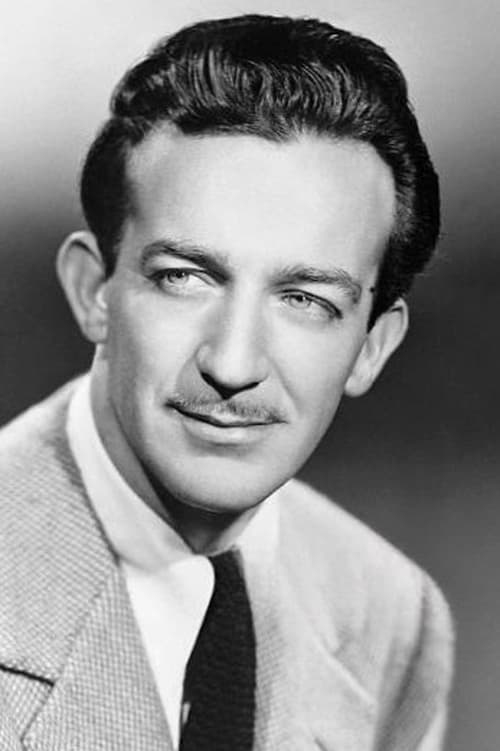
Harry James
Harry Haag James
atau dikenal sebagai
Riwayat Hidup
Harry James was born in a rundown hotel next to the city jail in Albany, Georgia.
His mother and father were members of a circus - she as a trapeze artist and he a band leader - with the Mighty Haag Circus.
At seven, they settled in Beaumont, Texas where Harry learned yo play drums.
By twelve, he was playing trumpet in the Christy Brothers circus band.
In 1936 James joined Ben Pollack's band, soon leaving to lead the brass section of Benny Goodman's band.
He even once applied to Lawrence Welk's band but was turned down because they said he played too loud and it was not Welk's style.
After three years with Goodman, he wanted to leave, and with Goodman's backing, he formed the Music Makers.
In 1943 he married pinup queen Betty Grable, his second of four wives.
He had earlier married and divorced Louise Tobin, a singer.
Grable kept appearing in movies and Harry kept playing while they raised horses.
He made his debut in Philadelphia at the Ben Franklin Hotel and soon was a nationwide favorite of dance lovers and jazz addicts, rocking the rafters at the Hollywood Paladium, Chicago's famous College Inn at the Hotel Sherman, Frank Dailey's Meadowbrook in Cedar Cove, NJ, and then onto New York City.
It was the Lincoln Hotel in NYC that the Music Makers called home, but James also starred at the Paramount Theater in the spring of 1943, with thousands of teenagers flocking to see him.
His version of You Made Me Love You was a big hit and a favorite of many through the war years.
James was a great discoverer of talent, finding Frank Sinatra working as a waiter in a New Jersey restaurant and giving him a job singing in his band.
Dick Haymes, Kitty Kallen, Connie Haines and Helen Forrest can all thank James for giving them their first real break.
In 1963 his band was featured at Disneyland, still known as the Music Makers.
He played his last gig at the Century Plaza Hotel in Los Angeles on June 26, 1983, just a few days before dying of lymphatic cancer.
Info Pribadi
Peran Yang Di Mainkan Harry James
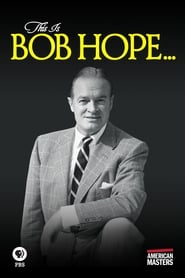 During his career Bob Hope was...
During his career Bob Hope was...This Is Bob Hope... 2017
During his career, Bob Hope was the only performer to achieve top-rated success in every form of mass entertainment. American Masters explores the entertainer’s life through his personal archives and clips from his classic films.
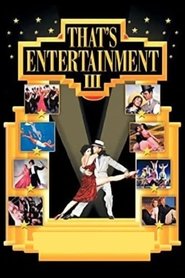 Some of MGMS musical stars review...
Some of MGMS musical stars review...That's Entertainment! III 1994
Some of MGM'S musical stars review the studios history of musicals. From The Hollywood Revue of 1929 to Brigadoon, from the first musical talkies to Gene Kelly in Singin' in the Rain.
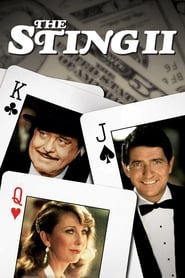 Hooker and Gondorf pull a con...
Hooker and Gondorf pull a con...The Sting II 1983
Hooker and Gondorf pull a con on Macalinski, an especially nasty mob boss with the help of Veronica, a new grifter. They convince this new victim that Hooker is a somewhat dull boxer who is tired of taking dives for Gondorf. There is a ringer. Lonigan, their victim from the first movie, is setting them up to take the fall.
 While a few Hollywood celebrities such...
While a few Hollywood celebrities such...Showbiz Goes to War 1982
While a few Hollywood celebrities such as James Stewart and Clark Gable saw combat during World War II, the majority used their talents to rally the American public through bond sales, morale-boosting USO tours, patriotic war dramas and escapist film fare. Comedian David Steinberg plays host for this star-studded, 90-minute documentary, which looks at the way Tinseltown helped the United States' war effort.
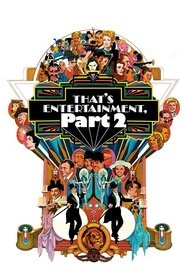 Gene Kelly and Fred Astaire present...
Gene Kelly and Fred Astaire present...That's Entertainment, Part II 1976
Gene Kelly and Fred Astaire present more golden moments from the MGM film library, this time including comedy and drama as well as classic musical numbers.
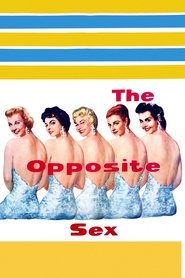 Former radio singer Kay learns from...
Former radio singer Kay learns from...The Opposite Sex 1956
Former radio singer Kay learns from her gossipy friends that her husband, Steve, has had an affair with chorus girl Crystal. Devastated, Kay tries to ignore the information, but when Crystal performs one of her musical numbers at a charity benefit, she breaks down and goes to Reno to file for divorce. However, when she hears that gold-digging Crystal is making Steve unhappy, Kay resolves to get her husband back. The Opposite Sex is a remake of the 1939 comedy The Women.
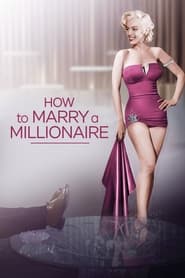 Three women set out to find...
Three women set out to find...How to Marry a Millionaire 1953
Three women set out to find eligible millionaires to marry, but find true love in the process.
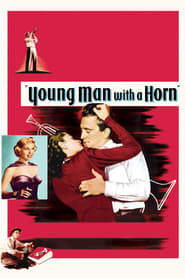 Taken in by the musical world...
Taken in by the musical world...Young Man with a Horn 1950
Taken in by the musical world as a young orphan, Rick Martin grows up with a desire to play pure jazz instead of the commercial gigs he lands, whilst also coping with the problems caused by his tempestuous marriage to an aloof heiress.
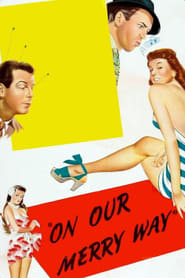 Oliver Pease gets a dose of...
Oliver Pease gets a dose of...On Our Merry Way 1948
Oliver Pease gets a dose of courage from his wife Martha and tricks the editor of the paper (where he writes lost pet notices) into assigning him the day's roving question. Martha suggests, "Has a little child ever changed your life?" Oliver gets answers from two slow-talking musicians, an actress whose roles usually feature a sarong, and an itinerant cardsharp. In each case the "little child" is hardly innocent: in the first, a local auto mechanic's "baby" turns out to be fully developed as a woman and a musician; in the second, a spoiled child star learns kindness; in the third, the family of a lost brat doesn't want him returned. And Oliver, what becomes of him?
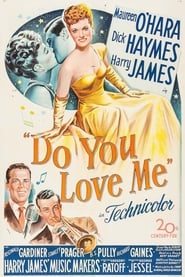 Katharine Hilliard mousy dean of a...
Katharine Hilliard mousy dean of a...Do You Love Me 1946
Katharine Hilliard, mousy dean of a stuffy music school, meets and is insulted by swing band leader Barry Clayton on a train. To "show" him she takes a friend's advice, removes her glasses, and puts on a designer gown. Naturally, she becomes gorgeous. Soon, both Barry and crooner Jimmy Hale are after her, and she finds herself in the midst of triangles and misunderstandings.
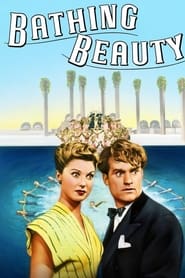 After breaking up with her fianc...
After breaking up with her fianc...Bathing Beauty 1944
After breaking up with her fiancé, a gym teacher returns to work at a women's college, but a legal loophole allows him to enroll as one of her students.
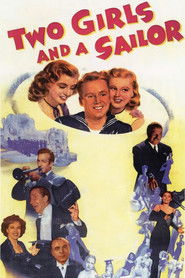 A sailor helps two sisters start...
A sailor helps two sisters start...Two Girls and a Sailor 1944
A sailor helps two sisters start up a service canteen. The sailor soon becomes taken with gorgeous sister Jean, unaware that her sibling Patsy is also in love with him.
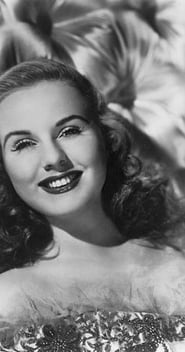 Documentary short film intended to drum...
Documentary short film intended to drum...The Shining Future 1944
Documentary short film intended to drum up support for the Fifth War Loan Campaign. It shows a happy family in the future of 1960 enjoying the prosperity and advantages made possible by the successful prosecution of the war, and how the sacrifices of 1944 have made the world a better place.
 Bud Hooper a cadet at Winsocki...
Bud Hooper a cadet at Winsocki...Best Foot Forward 1943
Bud Hooper, a cadet at Winsocki Military Academy, sends an invitation to movie star Lucille Ball to come to Winsocki's big dance. Ball's publicity-hungry agent convinces her to go in order to boost her career. Complications arise when Bud's girlfriend Helen Schlesinger unexpectedly shows up, too.
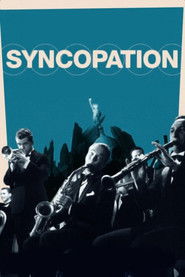 A young trumpeter rises through the...
A young trumpeter rises through the...Syncopation 1942
A young trumpeter rises through the jazz world and finds love.
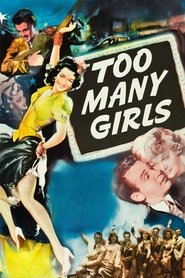 Mr Caseys daughter Connie wants to...
Mr Caseys daughter Connie wants to...Too Many Girls 1940
Mr. Casey's daughter, Connie, wants to go to Pottawatomie College and without her knowledge, he sends four football players as her bodyguards. The college is in financial trouble and her bodyguards use their salary to help the college. The football players join the college team, and the team becomes one of the best. One of the football players, Clint, falls in love with Connie, but when she discovers he is her bodyguard, she decides to go back East. The bodyguards follow her, leaving the team in the lurch.
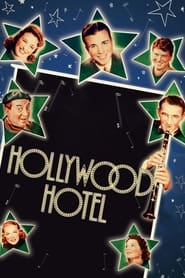 After losing a coveted role in...
After losing a coveted role in...Hollywood Hotel 1938
After losing a coveted role in an upcoming film to another actress, screen queen Mona Marshall (Lola Lane) protests by refusing to appear at her current movie's premiere. Her agent discovers struggling actress Virginia Stanton (Rosemary Lane) -- an exact match for Mona -- and sends her to the premiere instead, with young musician Ronnie Bowers (Dick Powell). After various mishaps, including a case of mistaken identity, Ronnie and Virginia struggle to find success in Hollywood.
 After his girl leaves him for...
After his girl leaves him for...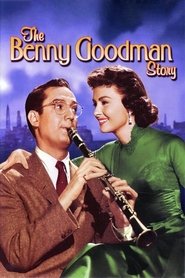 Young Benny Goodman is taught clarinet...
Young Benny Goodman is taught clarinet...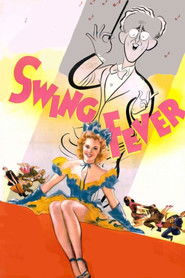 Comedy about a bandleader with hypnotic...
Comedy about a bandleader with hypnotic...